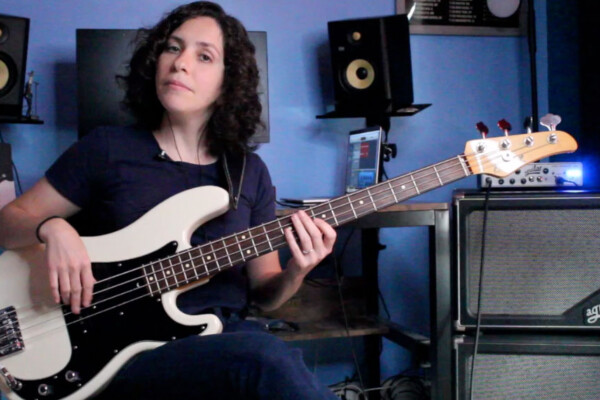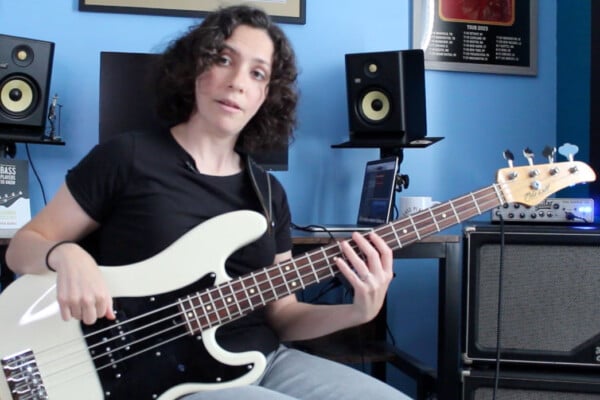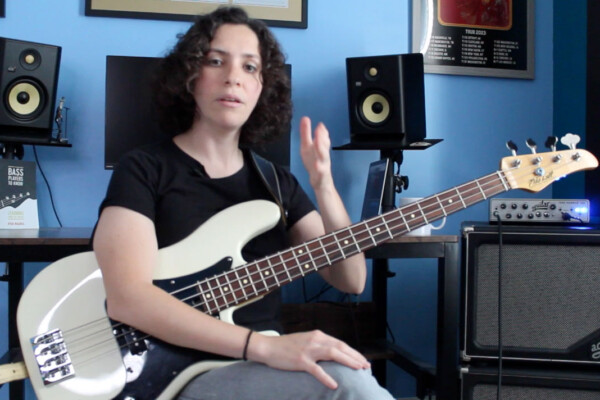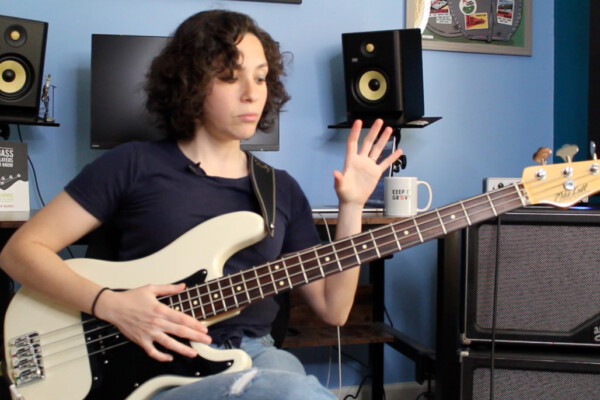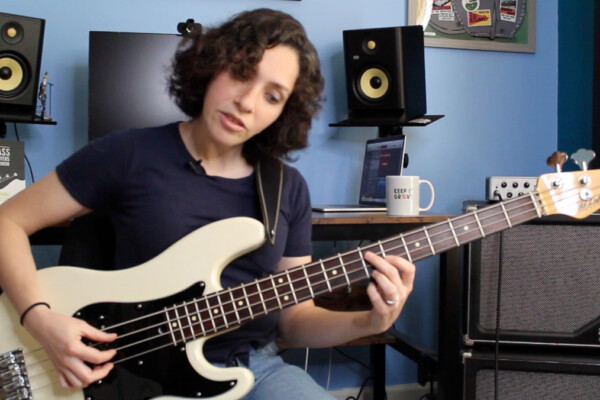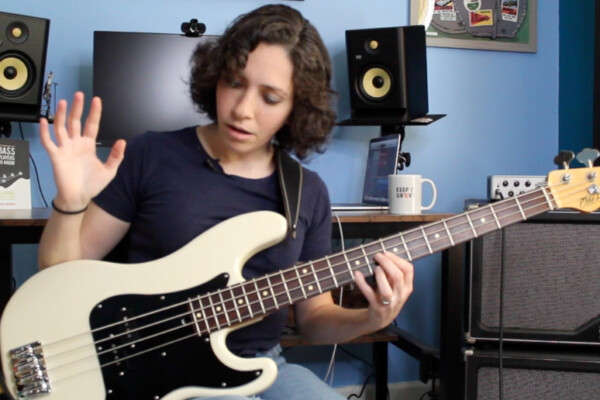Keep It Groovy - Page 2
How To Play A Texas Shuffle In E
Today’s “Keep It Groovy” lesson involves playing a blues shuffle in the key of E, and more specifically, a Texas style shuffle. Inspired by the bass line from Albert Collins’ “T Bone Shuffle,” this takes us through a 12-bar-blues progression.
Dead Note Exercise: Practice Walking Bass And Adding Dead Notes
In this new “Keep It Groovy” lesson, Ryan Madora takes a simple walking bass line that moves from E to B (or I to V) and adds dead notes. These dead notes add funk and groove to an otherwise simple walking line.
Dead Note Exercise: Practice Walking Bass and Add Dead Notes (E to A)
In this “Keep It Groovy” lesson, Ryan Madora takes a simple walking bass line that moves from E to A (or I to IV) to demonstrate how to add dead notes to add more rhythmic interest.
Cissy Strut Jam: Groove Like George Porter Jr. of The Meters
In this “Keep It Groovy” episode, we’ll channel the power of George Porter Jr. to get our funk on. Check out this lesson Ryan Madora created around “Cissy Strut” by The Meters.
Learn How To Play A Country Bass Line: Folsom Prison Blues by Johnny Cash
Let’s add to your repertoire of country blues bass lines and practice the Johnny Cash classic, “Folsom Prison Blues.” Ryan Madora breaks it down in this “Keep It Groovy” bass lesson.
Learning Arpeggios On The Bass: G Major 2-5-1 Exercise For Major and Minor Triads On Bass
In this “Keep It Groovy” lesson, Ryan Madora guides us through practicing arpeggio shapes by playing through a very common chord progression. It’s the perfect warm-up exercise to play with a metronome and can even be shifted to other keys.
Finding The Best P Bass Tone: Flat vs. Round Wound Strings
In this “Keep It Groovy” bass lesson, Ryan Madora explores the tonal capabilities of the Precision (or “P”) bass. She A-B tests the difference between flat wound and round wound strings along the way.
Learn How To Play Pull-Offs: Essential Funk Bass Technique – Part 2
In Part 2 of this lesson series, we further develop our bass groove with the E minor pentatonic scale and a few built-in moves perfect for pull-offs.
Learn How To Play Pull-Offs: Essential Funk Bass Technique – Part 1
This lesson explores the pull-off technique, an essential element of bass playing. While it’s typically used in funk, this can be applied across all genres of music.
Playing Hammer-Ons on Bass In The Key Of E – Part 2
Here’s a quick follow-up to Ryan Madora’s previous “Keep It Groovy” lesson on hammer-ons in the key of E. Ryan reviews the basics of the technique and then adds a few new funky options to help build our groove.
Playing Hammer-Ons on Bass In The Key Of E – Part 1
In this lesson, Ryan Madora breaks down the technique of hammering-on. A quintessential element of bass technique, this focuses on our fretting hand and adds plenty of groove to any bass line.
Nailing The Bass Intro To “My Girl” By Palm Muting and Getting a Vintage Tone
In this lesson, we’ll learn how to keep it groovy by palm muting and using our thumb — a slightly different technique compared to standard finger-style playing. To practice this, we’ll play the distinctive intro part to “My Girl” by The Temptations.
